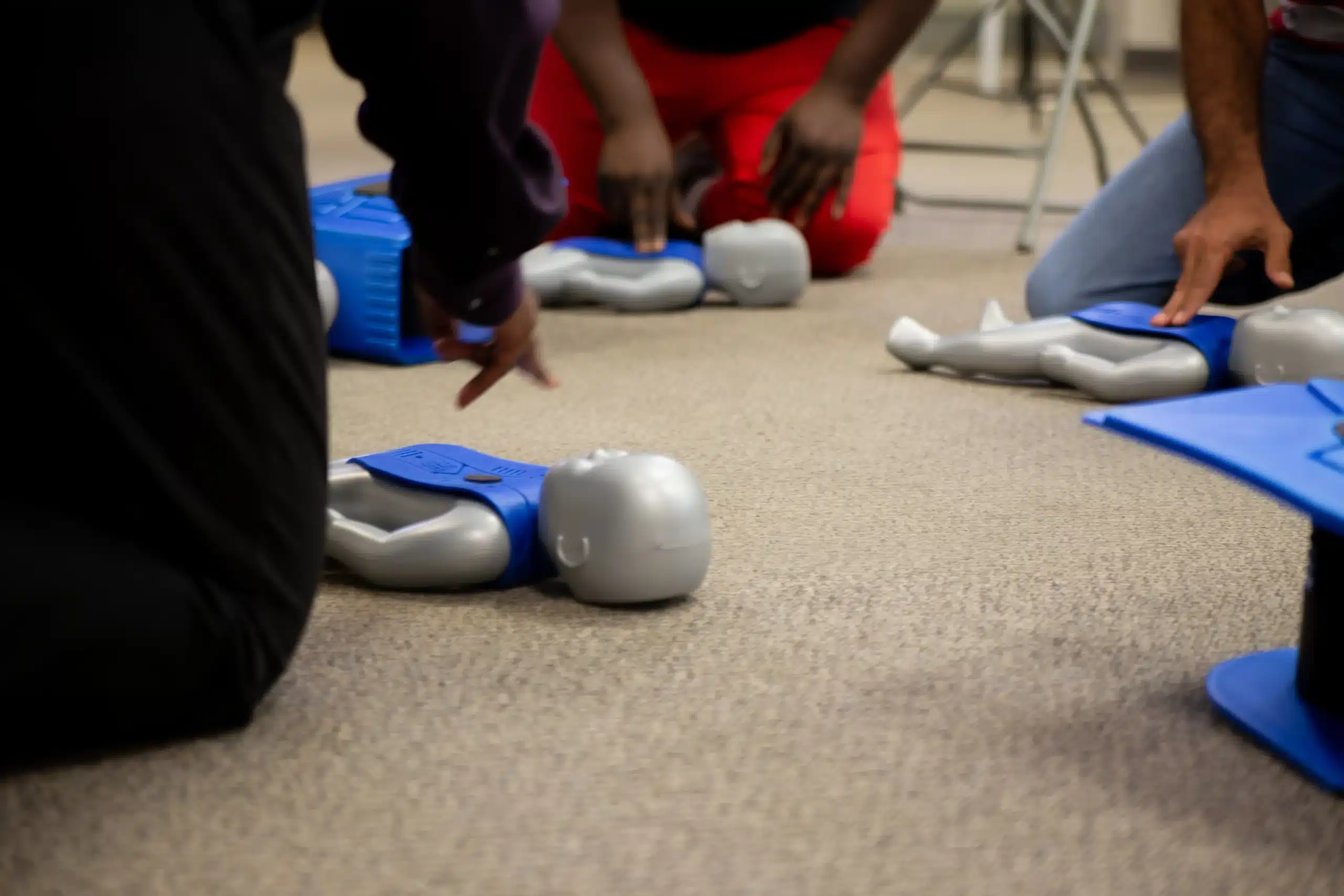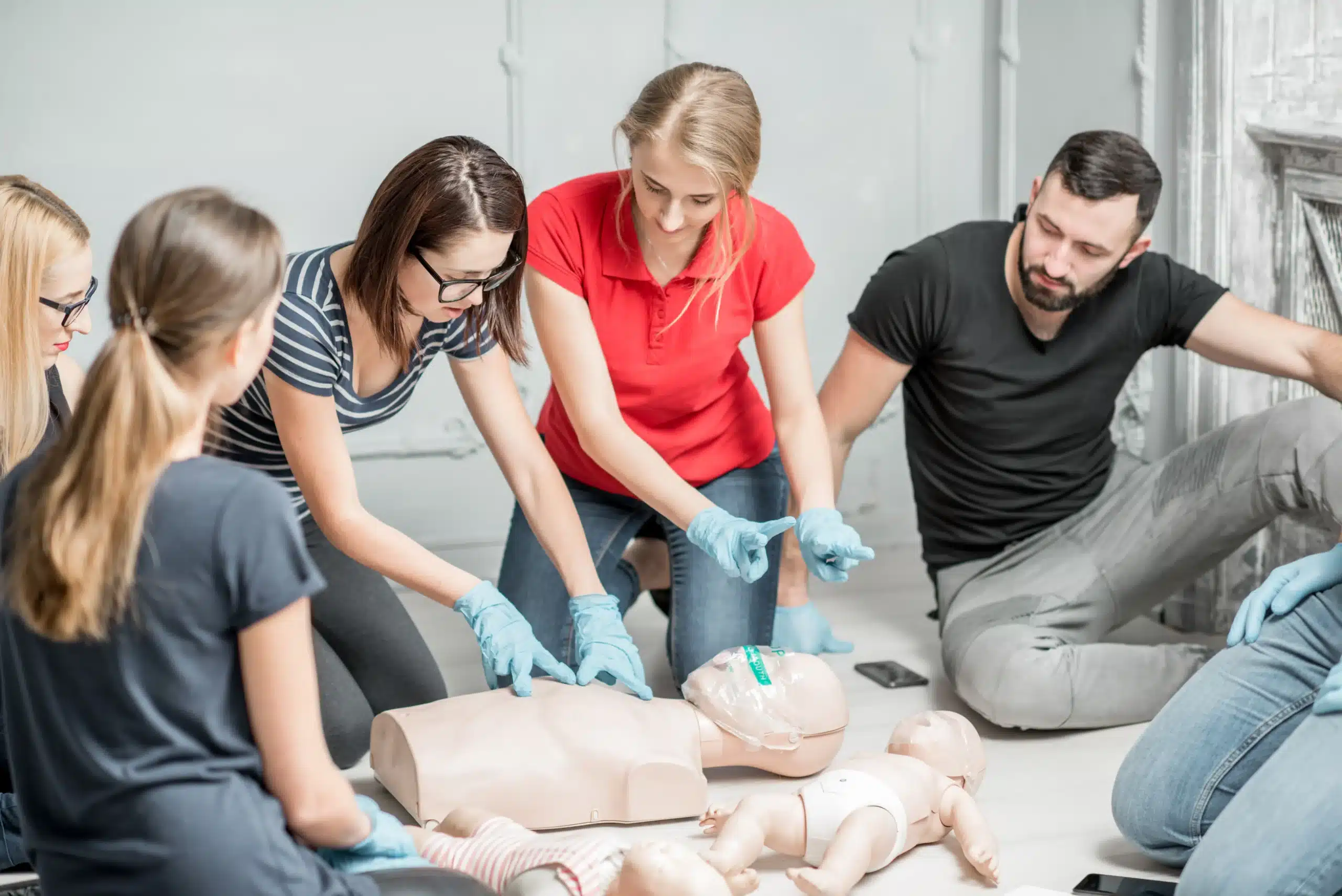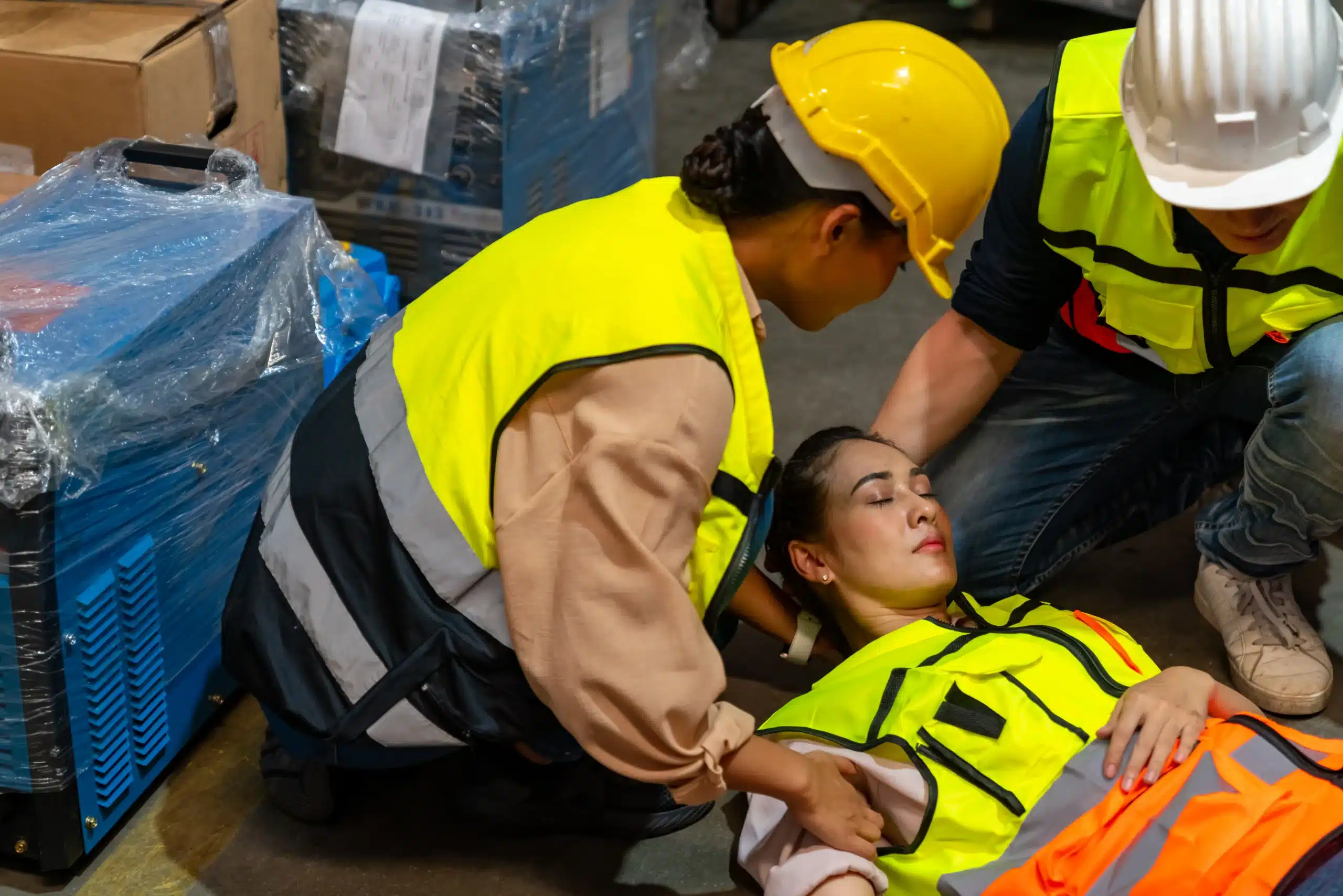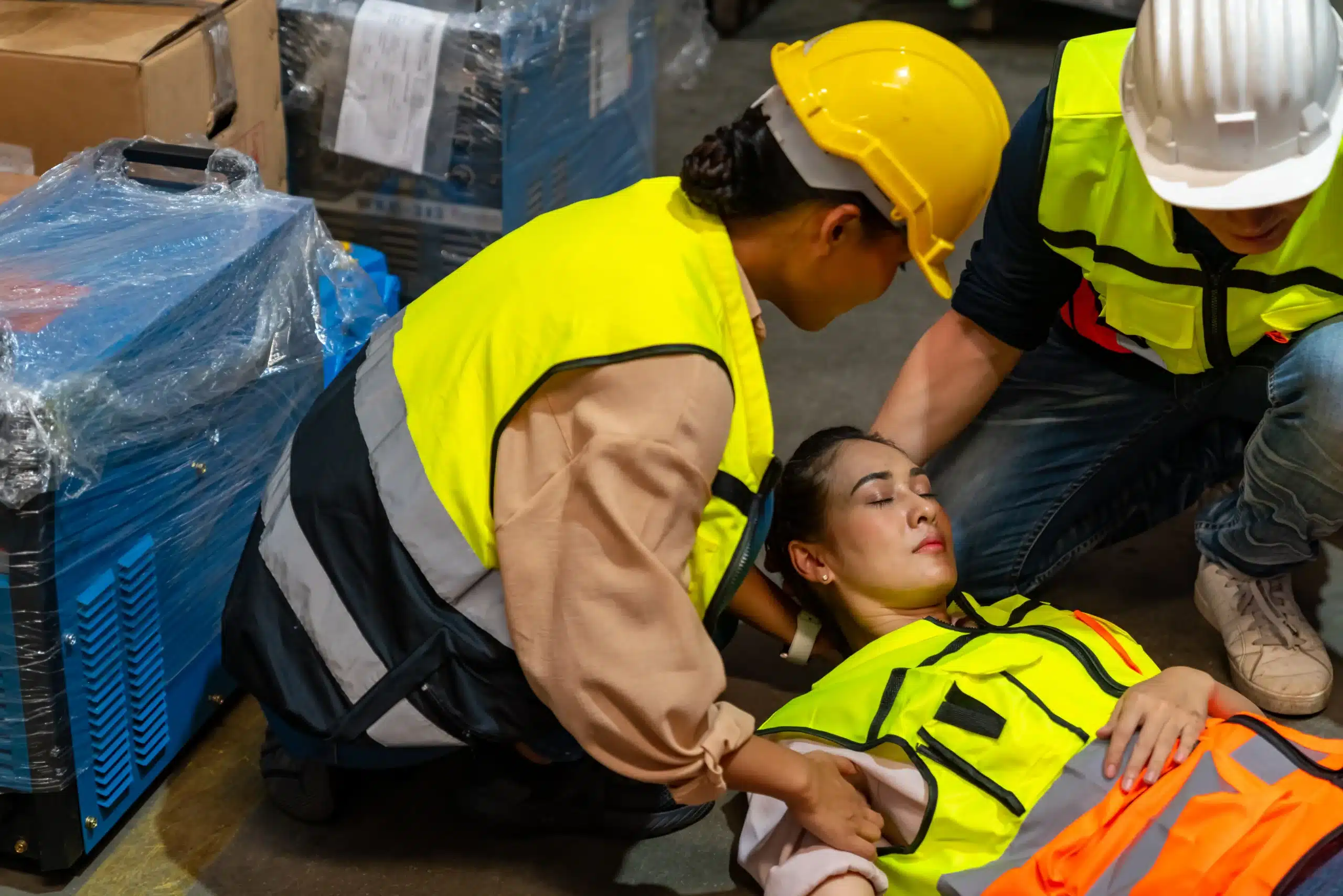Working in healthcare demands constant learning and adaptation. Medical knowledge evolves, and so should your skills. If you’re an ACLS-certified healthcare provider, you know how vital it is to stay at the top of your game. An ACLS refresher course is your chance to refine your expertise and learn the latest techniques in Advanced Cardiovascular Life Support. This article will explore the benefits of taking an ACLS refresher nearby, the different course formats available, and how to choose the best one for you. We’ll also cover key components of ACLS and why staying current is so important for providing excellent patient care.
Key Takeaways
- ACLS refreshers are crucial for quality care: Staying up-to-date on the latest guidelines ensures confident responses to cardiac emergencies and demonstrates your commitment to providing excellent patient care. Regularly refreshing your skills is a professional must-have.
- Finding the right course is essential: Consider instructor experience, reviews, accreditation, cost, and format (online, blended, or in-person) when selecting a refresher. The right fit maximizes learning and retention.
- Active participation solidifies skills: Engage fully in your refresher course, ask questions, and connect learning to real-world scenarios. This strengthens your skills and builds confidence in managing medical emergencies.
What is an ACLS Refresher Course?
An ACLS refresher course is designed for healthcare providers who already hold ACLS certification and need to renew it. These courses repackage the core concepts of Advanced Cardiovascular Life Support, making them ideal for staying up-to-date on the latest guidelines. Think of it as a tune-up for your skills, ensuring you’re prepared to lead and participate in a team responding to cardiopulmonary emergencies. The renewal process typically includes a refresher course, a written exam, and a hands-on skills session to evaluate your proficiency. According to the Children’s Hospital of Philadelphia, ACLS courses are designed for both in-hospital and out-of-hospital settings, covering essential lifesaving skills and techniques updated to current medical standards.
Key ACLS Components
ACLS certification equips healthcare providers with the practical skills and knowledge to manage complex cardiac emergencies. It goes beyond basic CPR, covering advanced techniques like airway management, rhythm recognition, and pharmacology for cardiac arrest situations. Refresher courses reinforce these skills, ensuring you can confidently apply them under pressure. ACLS courses cover essential life-saving skills and techniques, updated to current medical standards.
Why Refreshers Matter
Regularly refreshing your knowledge and skills ensures you’re prepared for cardiovascular emergencies and demonstrates your commitment to providing excellent patient care. Medical best practices are constantly evolving, and refresher courses incorporate the latest updates to treatment protocols. Staying current with your ACLS certification isn’t just a professional requirement—it’s a commitment to delivering the highest quality patient care. ACLS certification is typically valid for two years, so factor renewal costs into your long-term professional development plan.
Find Top ACLS Refresher Providers Near You
Finding the right ACLS refresher course is crucial for staying up-to-date on the latest life-saving techniques. Here are a few options to explore in your area:
Berkeley CPR Classes
Berkeley CPR Classes offers comprehensive ACLS training designed to reinforce essential skills. Their hands-on approach, combined with a supportive learning environment, helps healthcare providers gain confidence in emergency response. They also offer a low price guarantee, making it a budget-friendly choice. For larger groups, explore their discount group class options. Berkeley CPR Classes also offers RQI classes.
Other Local Options
Hayward CPR Classes
Hayward CPR Classes provides helpful resources for finding ACLS recertification courses, including information on online options and using official ACLS provider manuals. This allows for flexible learning and ensures you’re studying the most current guidelines.
Carmichael CPR Classes
Carmichael CPR Classes emphasizes the standard ACLS renewal process, which typically includes a refresher course, written exam, and a hands-on skills demonstration. This thorough approach ensures providers maintain proficiency in ACLS protocols.
Pulse CPR School
Pulse CPR School focuses on accessibility and hands-on learning. Their ACLS classes cater to all healthcare providers and are taught by expert instructors, emphasizing practical skills and building confidence for real-world scenarios.
Safety Training Seminars
Safety Training Seminars offers a range of AHA-certified courses, including CPR, BLS, ACLS, and PALS, in Berkeley, CA. Their convenient daily schedule makes it easier to fit training into busy professional lives.
ACLS Medical Training
ACLS Medical Training boasts a strong track record, with thousands of healthcare professionals certified in various disciplines, including BLS, ACLS, PALS, and Neonatal care. Their numerous customer reviews offer valuable insights into the quality of their training programs.
Course Structure and Content
ACLS refresher courses are designed to reinforce and update your advanced cardiovascular life support skills. They cover the latest treatment protocols and guidelines, ensuring you’re prepared to handle cardiac emergencies effectively. Here’s what these courses typically include:
Updated Algorithms and Protocols
Medical knowledge is constantly evolving. Refresher courses incorporate updated algorithms, medications, and best practices for managing various cardiac emergencies, including cardiac arrest, stroke, and acute coronary syndromes. Staying current on these protocols is crucial for providing effective patient care. You’ll review essential life-saving skills and techniques, ensuring your knowledge aligns with current medical standards.
Medication Review
Pharmacology plays a vital role in ACLS. Refresher courses review essential medications used in cardiac emergencies, including their dosages, routes of administration, and potential side effects. This review helps solidify your understanding of these critical drugs and their appropriate use in various scenarios.
Team Dynamics and Communication
Effective teamwork and communication are paramount in high-pressure medical situations. ACLS refresher courses emphasize the importance of clear communication, defined roles, and coordinated efforts within the resuscitation team. This focus on teamwork helps improve patient outcomes.
Hands-On Practice
ACLS isn’t just about theory; it’s about practical application. Refresher courses provide opportunities for hands-on practice with essential skills like CPR, intubation, and defibrillation. With the exception of online courses, these refreshers blend classroom learning with hands-on practice, building confidence and reinforcing muscle memory so you can respond effectively in real-world emergencies. For more information on course formats, see ACLS courses.
Case Scenario Simulations
To prepare you for the complexities of real-life emergencies, ACLS refresher courses often incorporate realistic case scenario simulations. These simulations test your decision-making skills, critical thinking, and ability to apply ACLS protocols in dynamic situations. Working through these scenarios, often in group settings, helps you develop the confidence and competence to manage complex medical emergencies effectively.
Compare Costs and Value
Finding the right ACLS refresher course involves balancing quality with cost. Understanding pricing structures and available discounts helps you make informed decisions. Fortunately, options exist to suit various budgets and learning preferences.
Average Refresher Pricing
When budgeting for your ACLS renewal, expect refresher courses in Berkeley to typically range from $150 to $300. This price usually covers both the online cognitive portion and the essential in-person skills testing. This range provides a helpful benchmark as you compare different providers, like those listed on Berkeley CPR Classes.
Group Discounts and Promotions
If you’re coordinating training for a team, look for providers offering group discounts. These discounts can significantly lower the per-person cost, making it more affordable to refresh everyone’s certification at once. Safety Training Seminars, for example, offers attractive group rates, as discussed in this article on ACLS renewal.
Online vs. In-Person Costs
Your choice between online and in-person learning can also affect the overall cost. Online ACLS recertification courses, covering the cognitive portion, often range from $169 to $275. In-person recertification, which includes skills testing, typically falls between $119 and $175. This difference in pricing allows you to select a format that aligns with both your learning style and budget. For a deeper look at online providers, check out this helpful article on choosing an online ACLS provider. Remember to factor in any additional costs, such as study materials or travel expenses, when making your final decision.
Evaluate Course Quality
Before committing to an ACLS refresher course, take the time to assess the program’s quality. A few key factors can help you determine if a course truly meets your needs and provides the best learning experience.
Instructor Credentials
Look for courses led by experienced, certified instructors. Ideally, your instructor should have a strong background in emergency medicine and hold current certifications from a recognized organization like the American Heart Association. Berkeley CPR Classes, for example, ensures all instructors complete the rigorous AHA instructor training and certification process. This level of training equips instructors to deliver high-quality instruction based on the latest guidelines and best practices.
Reviews and Ratings
Reading reviews from past participants offers valuable insights into a course’s strengths and weaknesses. Check online reviews and testimonials to understand other students’ experiences. A high volume of positive reviews often indicates a well-regarded program. While individual experiences can vary, consistent positive feedback can give you confidence in the course’s overall quality.
Accreditation and Certification
Confirm the course is accredited by a reputable organization, such as the American Heart Association. AHA certification is the gold standard for ACLS training, ensuring the course content aligns with current resuscitation guidelines. Verify the course offers a valid AHA ACLS certification card upon successful completion. This is essential to ensure your certification is recognized by employers and meets professional requirements. You can learn more about AHA certification standards and the importance of choosing an accredited program. This due diligence will help you avoid online programs that may not meet AHA requirements.
Choose the Right ACLS Refresher Format
Deciding on the best ACLS refresher format depends on your learning style, schedule, and preferences. Let’s break down the three main options: online self-paced learning, blended learning, and traditional classroom learning. Each has its own advantages, so consider what works best for you.
Online Self-Paced Learning
Online ACLS refresher courses offer maximum flexibility. You can study anytime, anywhere, and move through the material at your own speed. This format is perfect for those with busy schedules or who prefer to learn independently. You’ll typically access online modules, videos, and practice quizzes, completing the coursework on your own time. While convenient, this format may not provide the same level of interaction as other options.
Blended Learning
Blended learning combines online and in-person training. You’ll complete online modules at your own pace, covering the theoretical aspects of ACLS. Then, you’ll attend an in-person skills session to practice and demonstrate your proficiency. This approach offers flexibility while still providing valuable hands-on experience and instructor feedback. It’s a great option for those who want a more interactive learning experience but still need scheduling flexibility. The American Heart Association also offers blended learning options.
Traditional Classroom Learning
Traditional classroom learning involves attending an in-person course led by an instructor. This format offers a structured learning environment with opportunities for real-time interaction with instructors and peers. You’ll benefit from hands-on practice, group discussions, and immediate feedback. Classroom learning is ideal for those who thrive in a collaborative setting and prefer direct instruction. Many providers offer flexible scheduling for in-person ACLS renewal courses, making it easier to fit into your schedule.
Register and Prepare
Now that you’ve decided to refresh your ACLS skills, it’s time to prepare for the course. These next steps will help you through the registration process and ensure you’re ready for class.
Eligibility
Before registering, confirm your current ACLS certification is still valid or hasn’t been expired for too long. ACLS certification is typically valid for two years. While some providers may accept students whose certifications have lapsed, it’s generally easier to take a refresher course before it expires. Factor renewal costs into your long-term professional development plan. If your certification has been expired for an extended period, you might need to retake the full ACLS course rather than a refresher.
Enrollment
Once you’re sure you’re eligible for a refresher, start searching for courses. Consider factors like cost, schedule, and learning format (online, in-person, or hybrid) when selecting an ACLS renewal provider. Many providers offer flexible online and in-person courses, accommodating busy schedules and various learning preferences. Check if the provider offers group discounts if you’re enrolling with colleagues. Finally, review the provider’s cancellation policy in case your plans change.
Pre-Course Materials
After enrolling, find out if there are any required pre-course materials. Some providers may require you to review updated ACLS guidelines and algorithms before the course begins. This preparation can include reviewing the latest information on maternal cardiac arrest or changes to existing protocols. Familiarizing yourself with these materials beforehand will help you get the most out of your refresher course. All ACLS course options teach the same AHA science-based skills and result in the same AHA ACLS Course Completion Card. Make sure your chosen course aligns with the latest AHA guidelines.
Maximize Your Refresher Experience
Getting the most out of your ACLS refresher course involves more than just showing up. It requires active participation and a focus on applying your skills to real-world scenarios. Here’s how to make the most of your refresher experience:
Active Participation
ACLS courses are demanding, and many students face challenges. One common hurdle is mastering megacode, the simulated emergency scenario that tests your ability to integrate knowledge and skills. Don’t be afraid to ask questions, even if they seem basic. Speaking up clarifies doubts and reinforces your understanding. Actively participate in discussions and simulations. The more you engage, the more you’ll retain. Remember, the goal is to build confidence and competence in managing real-life emergencies. ACLS courses can be rigorous, so make the most of them.
Real-World Application
ACLS certification equips healthcare providers with the practical skills and knowledge to manage complex cardiac emergencies. Focus on how the concepts and techniques you’re learning apply to your daily work. Consider how you would respond to different scenarios and how you can integrate new guidelines into your practice. In-person ACLS renewal courses offer valuable hands-on practice and the chance to connect with instructors and peers, enriching the learning experience. This practical application is key to translating classroom knowledge into effective patient care. Discuss specific challenges you’ve encountered with your instructors and colleagues. Sharing experiences and insights can provide valuable perspectives and enhance your problem-solving abilities. Consider how your ACLS certification prepares you for real-world situations.
Stay Current with ACLS Guidelines
Staying up-to-date with the latest ACLS guidelines is crucial for any healthcare provider. It ensures you’re equipped to deliver the most effective care during cardiovascular emergencies. This section covers key aspects of staying current, from recertification requirements to ongoing learning resources.
Recertification
ACLS certification is typically valid for two years. Plan ahead and factor renewal costs into your long-term professional development budget. Renewing your ACLS certification isn’t just a formality; it’s about maintaining those essential, sometimes complex, skills. The renewal process often involves a refresher course, a written exam, and a hands-on skills session to demonstrate your proficiency. Think of it as a tune-up for your skills, making sure you’re always ready to respond effectively.
Ongoing Learning Resources
Beyond recertification, many resources can help you stay on top of ACLS best practices. Providers offer flexible online and in-person courses that fit busy schedules and different learning styles. You can explore ACLS course options in blended learning formats and traditional classroom settings. The American Heart Association also offers updated resources, like information on maternal cardiac arrest and the latest in-hospital algorithm. Staying informed about these updates is key to providing excellent care.
Related Articles
- ACLS Renewal Berkeley: Your Complete Guide – Berkeley CPR Classes
- Find ACLS Renewal Courses Near Me – Berkeley CPR Classes
- Advanced Cardiac Life Support (ACLS) in Berkeley – Berkeley CPR Classes
- ACLS HeartCode Oakland: Your Certification Guide – Berkeley CPR Classes
- ACLS Provider Training in Berkeley: A Complete Guide – Berkeley CPR Classes
Frequently Asked Questions
How often do I need to renew my ACLS certification? ACLS certification is typically valid for two years. It’s a good idea to mark your calendar and start thinking about renewal a few months before your certification expires to allow time for finding a course and scheduling.
What’s the difference between an ACLS initial certification course and a refresher course? An initial course covers all the fundamental concepts and skills of ACLS for the first time. A refresher course is designed for those who already hold a valid or recently expired ACLS certification and want to renew it. It focuses on reinforcing key concepts, updating skills, and covering any changes to the latest guidelines.
What’s typically covered in an ACLS refresher course? ACLS refresher courses cover core components like updated algorithms and protocols, medication review, team dynamics and communication, and hands-on practice with essential skills like CPR, intubation, and defibrillation. They also often include realistic case scenario simulations to test your decision-making in dynamic situations.
Are online ACLS refresher courses accepted? Yes, many organizations accept online refresher courses for the cognitive portion of the recertification. However, you’ll also need to complete an in-person skills check with a certified instructor to fully renew your certification. Check with your employer or certifying body to confirm their specific requirements.
How can I find a high-quality ACLS refresher course near me? Start by checking with your employer, local hospitals, or professional organizations for recommendations. You can also search online for certified training centers in your area. Look for courses taught by experienced, certified instructors and check reviews from past participants to get a sense of the program’s quality. Make sure the course is accredited by a reputable organization like the American Heart Association.







